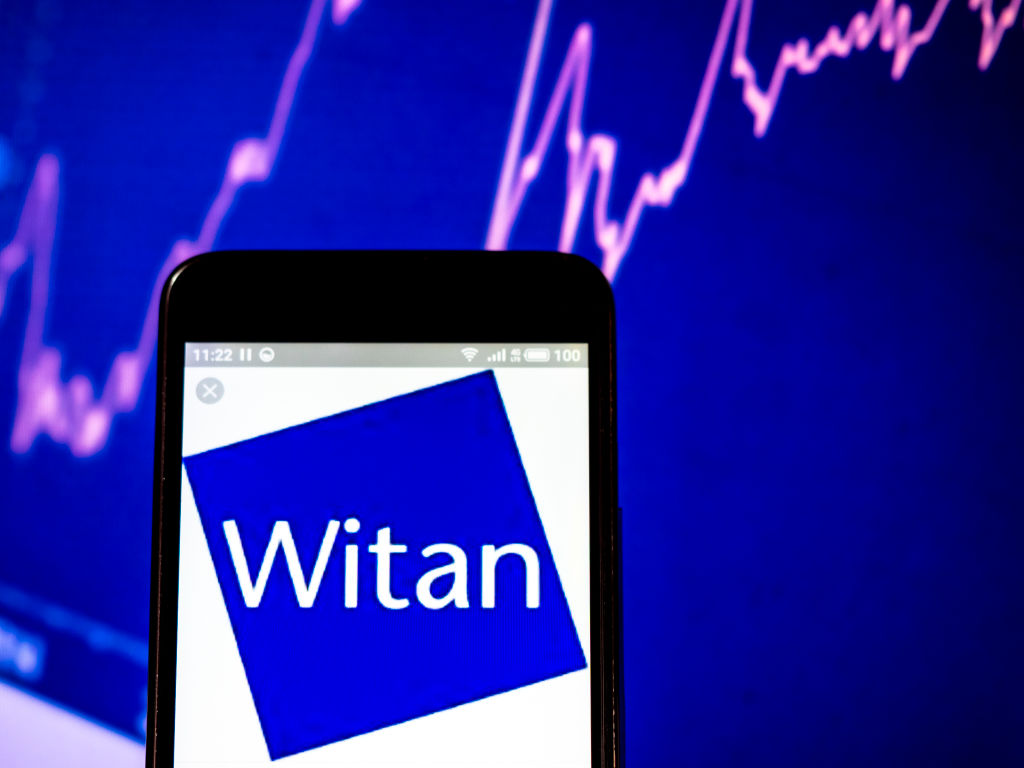Alliance Trust and Witan merge in blockbuster deal - but what does it mean for investors?
The two investment trusts come together after a wave of consolidation in the sector


Get the latest financial news, insights and expert analysis from our award-winning MoneyWeek team, to help you understand what really matters when it comes to your finances.
You are now subscribed
Your newsletter sign-up was successful
Want to add more newsletters?

Twice daily
MoneyWeek
Get the latest financial news, insights and expert analysis from our award-winning MoneyWeek team, to help you understand what really matters when it comes to your finances.

Four times a week
Look After My Bills
Sign up to our free money-saving newsletter, filled with the latest news and expert advice to help you find the best tips and deals for managing your bills. Start saving today!
Alliance Trust will merge with smaller investment trust rival Witan in a seismic deal that will give the newly formed entity net assets of around £5bn, making it one of the UK’s biggest.
The merger will likely catapult the newly-formed Alliance Witan into the FTSE 100, where it will sit alongside competitors F&C Investment Trust and Scottish Mortgage.
Laith Khalaf, head of investment analysis at AJ Bell, says: “This is a blockbuster merger of two of the biggest and oldest names in the investment trust world. The deal will result in lower annual charges for investors, as well as preserving the long dividend track records of both trusts. The share price of both trusts rose on the back of the news, especially Witan, which suggests the market thinks the deal provides decent value to both sets of shareholders.”
MoneyWeek
Subscribe to MoneyWeek today and get your first six magazine issues absolutely FREE

Sign up to Money Morning
Don't miss the latest investment and personal finances news, market analysis, plus money-saving tips with our free twice-daily newsletter
Don't miss the latest investment and personal finances news, market analysis, plus money-saving tips with our free twice-daily newsletter
The deal comes in the wake of a strategic review that was kick-started by the retirement of Witan chief executive Andrew Bell. The merger will complete in October this year, when the new shares for Alliance Witan will be issued.
Alliance Trust is one of the UK's most high-profile investment trusts. It is also one of the most popular trusts selected by DIY investors each month. Morningstar says it is currently trading at a -5.64% discount, which means the shares are trading below the net asset value. Meanwhile, Witan has a market capitalisation of £1.64 billion and is trading at a -7.83% discount to NAV.
Returns up 300%
Bell announced his retirement from Witan in March after spending more than 14 years at the firm. Since taking charge of the trust in 2010, returns have risen by almost 300%.
Andrew Ross, chair of Witan, said that since Bell announced his intention to retire, the company’s board has been through an extensive process to “identify the best candidate to take on the management of our shareholders’ assets”.
He added: “The board assessed a number of very strong proposals, including single-manager candidates with impressive track records. However, the board was unanimous in recommending the combination with Alliance Trust.”
Khalaf said: “There has been a great deal of consolidation in the investment trust industry, driven by high discounts and falling asset values. But that’s not what’s going on here; both these trusts have significant assets and are big enough to keep ploughing their own furrows if they so wished.
“The announced retirement of Andrew Bell appears to have been a critical catalyst for the merger.”
Alliance Trust and Witan both use multi-manager strategies. Alliance Trust uses Willis Towers Watson as an investment manager, while Witan has a panel of six outsourced investment managers – including Lindsell Train and Artemis.
Following the merger, Willis Towers Watson will manage the assets of the merged entity.
Khalaf says: “The new vehicle will follow the existing investment strategy of Alliance Trust rather than Witan, hardly surprising seeing as the lead manager of Witan is retiring. Willis Towers Watson have also done a good job at steadying the Alliance Trust ship and delivering outperformance since they were handed the mandate in 2017.”
Get the latest financial news, insights and expert analysis from our award-winning MoneyWeek team, to help you understand what really matters when it comes to your finances.
Chris is a freelance journalist, and was previously an editor and correspondent at the Financial Times as well as the business and money editor at The i Newspaper. He is also the author of the Virgin Money Maker, the personal finance guide published by Virgin Books, and has written for the BBC, The Wall Street Journal, The Independent, South China Morning Post, TimeOut, Barron's and The Guardian. He is a graduate in Economics.
-
 Should you buy an active ETF?
Should you buy an active ETF?ETFs are often mischaracterised as passive products, but they can be a convenient way to add active management to your portfolio
-
 Power up your pension before 5 April – easy ways to save before the tax year end
Power up your pension before 5 April – easy ways to save before the tax year endWith the end of the tax year looming, pension savers currently have a window to review and maximise what’s going into their retirement funds – we look at how
